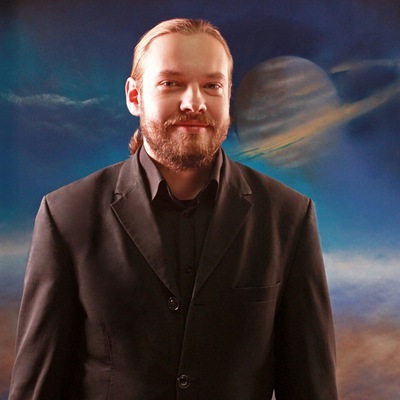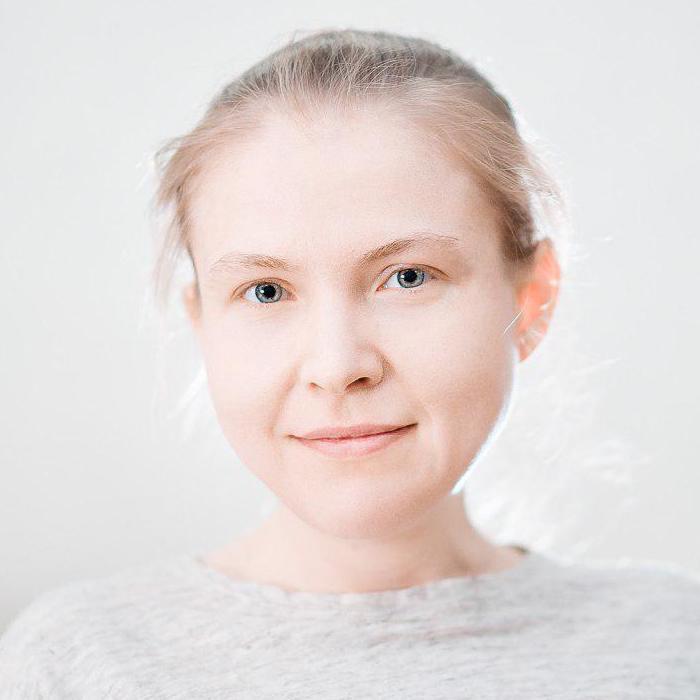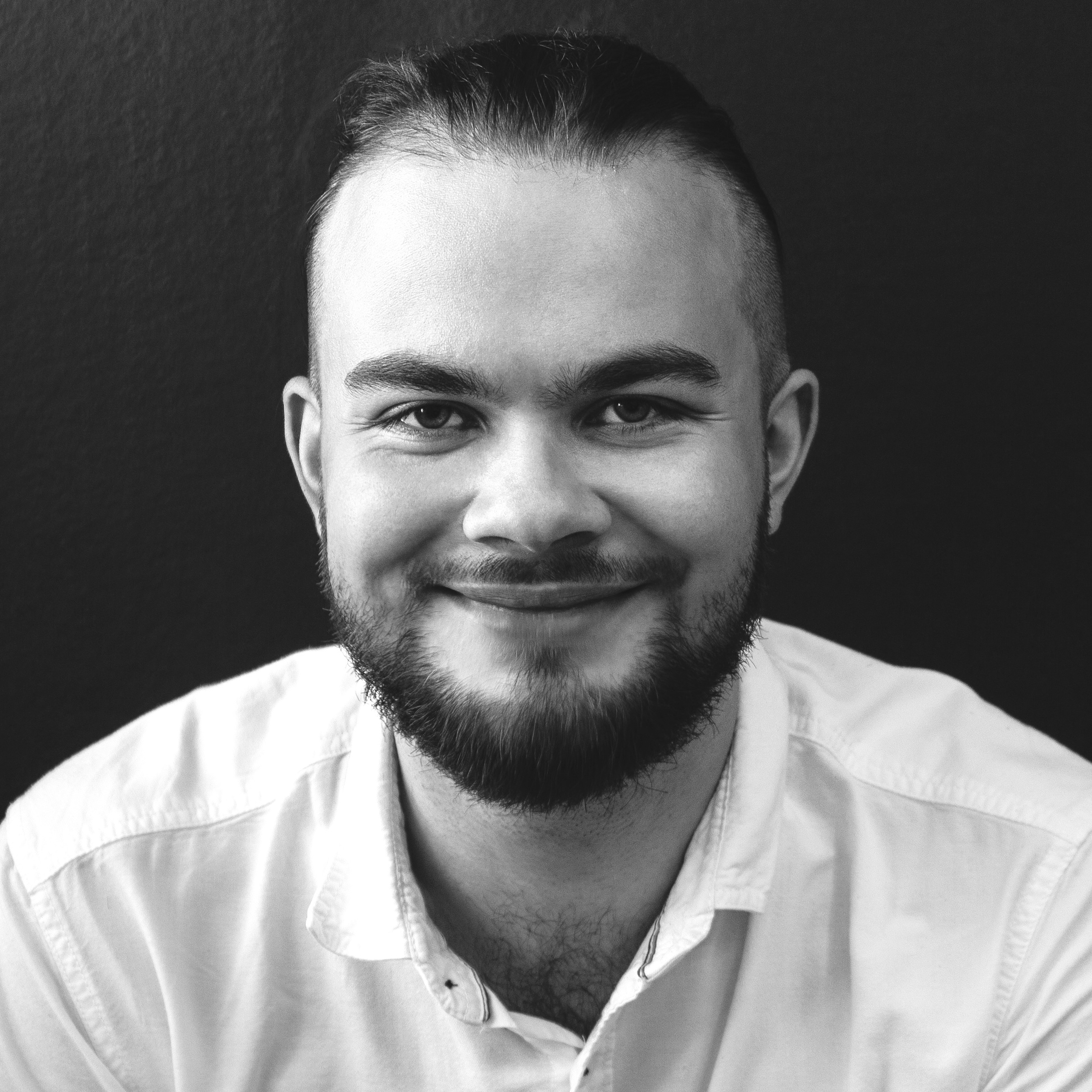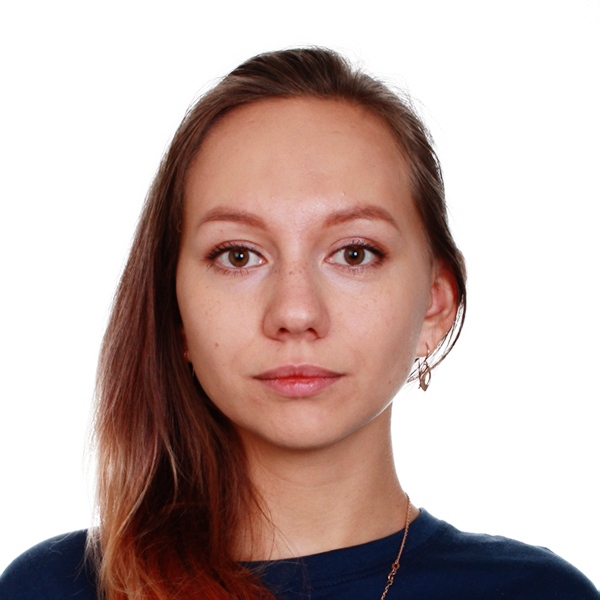Science Section at the DUMP conference: expand the horizons of knowledge
April 19 in Yekaterinburg will host a conference of developers DUMP . The program directors of the Science section - Victor Grishchenko (TU Delft), Alexey Kirpichnikov (Contour) and Gleb Alshansky (Jet.Team) - said that they would be interested in the section and why go for it.

How often have you had such that at a conference in 5, 6, 7, 8 or more streams at some point in time there is still no place to go? Just because your specialization is one or two sections, and there are stated topics on which you yourself would tell more, better, more hardcore. Or, conversely, a stack or a topic by you.
')
For such a case, a section on Science was created at DUMP - a section on exact and natural sciences, on discoveries that will change our lives in the next 5-10 years, on research at the intersection of science and IT, and on what global science tasks you can apply skills.
This year we are waiting for: immersion in mathematics, the transition to quantum computing, breakthrough technologies in text recognition and a critical view on machine learning. Let's solve the tasks of a planetary scale and dive into the level of microcosm and DNA in the fight against aging. And finally, let's see how technology helps to solve the greatest challenges of mankind.
 Can neural networks on mobile phones extend our life and help improve its quality? Is it possible to slow down aging? What discoveries in the field of aging has science made in recent years? What does data-science have to do with it? The head of the laboratory for modeling living systems at MIPT and the CEO of Gero, Peter Fedichev, will tell about it.
Can neural networks on mobile phones extend our life and help improve its quality? Is it possible to slow down aging? What discoveries in the field of aging has science made in recent years? What does data-science have to do with it? The head of the laboratory for modeling living systems at MIPT and the CEO of Gero, Peter Fedichev, will tell about it.
 Oleg Bartunov will perform in an unusual for the developers of roles - as a senior researcher in the department of emission stars and galaxies of Moscow State University GAISH. Oleg will tell about the changes taking place in science, explain what scientific data are, why it is so important to preserve “raw data” and what requirements are placed on the architecture of scientific databases. Using astronomy as an example, Oleg will show how information technologies help to solve the greatest tasks of mankind.
Oleg Bartunov will perform in an unusual for the developers of roles - as a senior researcher in the department of emission stars and galaxies of Moscow State University GAISH. Oleg will tell about the changes taking place in science, explain what scientific data are, why it is so important to preserve “raw data” and what requirements are placed on the architecture of scientific databases. Using astronomy as an example, Oleg will show how information technologies help to solve the greatest tasks of mankind.
 Pavel Skripnichenko , a teacher of the department of astronomy and geodesy of the Institute of Physics and Mathematics and Physics, Ural Federal University, popularizer of science, head of the kantrSkrip School of Astronomy, will tell you how great the danger of asteroid and comet is, whether the mankind can protect itself from this danger, what means of observation, prediction and countermeasures are real, if there is a threat, how can mankind protect itself from this danger, what means of observation, forecasting and countermeasures can exist, can there be any means of observation, prediction and opposition? What remains to be done to answer the question - there will be no end of the world?
Pavel Skripnichenko , a teacher of the department of astronomy and geodesy of the Institute of Physics and Mathematics and Physics, Ural Federal University, popularizer of science, head of the kantrSkrip School of Astronomy, will tell you how great the danger of asteroid and comet is, whether the mankind can protect itself from this danger, what means of observation, prediction and countermeasures are real, if there is a threat, how can mankind protect itself from this danger, what means of observation, forecasting and countermeasures can exist, can there be any means of observation, prediction and opposition? What remains to be done to answer the question - there will be no end of the world?
 Tatyana Zobnina , a statistician from Naumen, will show how to extract knowledge from machine learning models, how to assess the importance of the relationships between different data, and how to interpret and visualize these dependencies.
Tatyana Zobnina , a statistician from Naumen, will show how to extract knowledge from machine learning models, how to assess the importance of the relationships between different data, and how to interpret and visualize these dependencies.
 Igor Mamai from Kontur will talk about how quantum computer programming turns from an occupation for candidates of sciences in white coats into a hobby that any programmer can do at home. Igor will give a theoretical base and links to emulators of quantum computers, which you can program yourself.
Igor Mamai from Kontur will talk about how quantum computer programming turns from an occupation for candidates of sciences in white coats into a hobby that any programmer can do at home. Igor will give a theoretical base and links to emulators of quantum computers, which you can program yourself.
 Gennady Shteh from Naumen will tell you how automatic text processing technologies have evolved with the advent of neural networks, what has changed significantly over the past year in the field of Natural Language Processing and why new opportunities are opening up in this area now.
Gennady Shteh from Naumen will tell you how automatic text processing technologies have evolved with the advent of neural networks, what has changed significantly over the past year in the field of Natural Language Processing and why new opportunities are opening up in this area now.

 Vladislav Blinov and Valeriya Baranova from Tinkoff.ru will sort out the task of creating a chatbot and answer the burning question concerning not only machine learning, but also any other rapidly developing field of science. Should a practicing engineer be in a hurry and take the latest algorithm from yesterday's scientific article? And in what cases are simpler and older algorithms working better on real-world problems?
Vladislav Blinov and Valeriya Baranova from Tinkoff.ru will sort out the task of creating a chatbot and answer the burning question concerning not only machine learning, but also any other rapidly developing field of science. Should a practicing engineer be in a hurry and take the latest algorithm from yesterday's scientific article? And in what cases are simpler and older algorithms working better on real-world problems?
Come to the section if you are tired of picking in the ordinary. Our speakers are to expand the horizons of knowledge :)

All reports from last year’s Science section can be viewed on the YouTube channel.
Abstracts of all reports and registration - on the conference website .

How often have you had such that at a conference in 5, 6, 7, 8 or more streams at some point in time there is still no place to go? Just because your specialization is one or two sections, and there are stated topics on which you yourself would tell more, better, more hardcore. Or, conversely, a stack or a topic by you.
')
For such a case, a section on Science was created at DUMP - a section on exact and natural sciences, on discoveries that will change our lives in the next 5-10 years, on research at the intersection of science and IT, and on what global science tasks you can apply skills.
What will the section be about?
This year we are waiting for: immersion in mathematics, the transition to quantum computing, breakthrough technologies in text recognition and a critical view on machine learning. Let's solve the tasks of a planetary scale and dive into the level of microcosm and DNA in the fight against aging. And finally, let's see how technology helps to solve the greatest challenges of mankind.
Reports
 Can neural networks on mobile phones extend our life and help improve its quality? Is it possible to slow down aging? What discoveries in the field of aging has science made in recent years? What does data-science have to do with it? The head of the laboratory for modeling living systems at MIPT and the CEO of Gero, Peter Fedichev, will tell about it.
Can neural networks on mobile phones extend our life and help improve its quality? Is it possible to slow down aging? What discoveries in the field of aging has science made in recent years? What does data-science have to do with it? The head of the laboratory for modeling living systems at MIPT and the CEO of Gero, Peter Fedichev, will tell about it. Oleg Bartunov will perform in an unusual for the developers of roles - as a senior researcher in the department of emission stars and galaxies of Moscow State University GAISH. Oleg will tell about the changes taking place in science, explain what scientific data are, why it is so important to preserve “raw data” and what requirements are placed on the architecture of scientific databases. Using astronomy as an example, Oleg will show how information technologies help to solve the greatest tasks of mankind.
Oleg Bartunov will perform in an unusual for the developers of roles - as a senior researcher in the department of emission stars and galaxies of Moscow State University GAISH. Oleg will tell about the changes taking place in science, explain what scientific data are, why it is so important to preserve “raw data” and what requirements are placed on the architecture of scientific databases. Using astronomy as an example, Oleg will show how information technologies help to solve the greatest tasks of mankind. Pavel Skripnichenko , a teacher of the department of astronomy and geodesy of the Institute of Physics and Mathematics and Physics, Ural Federal University, popularizer of science, head of the kantrSkrip School of Astronomy, will tell you how great the danger of asteroid and comet is, whether the mankind can protect itself from this danger, what means of observation, prediction and countermeasures are real, if there is a threat, how can mankind protect itself from this danger, what means of observation, forecasting and countermeasures can exist, can there be any means of observation, prediction and opposition? What remains to be done to answer the question - there will be no end of the world?
Pavel Skripnichenko , a teacher of the department of astronomy and geodesy of the Institute of Physics and Mathematics and Physics, Ural Federal University, popularizer of science, head of the kantrSkrip School of Astronomy, will tell you how great the danger of asteroid and comet is, whether the mankind can protect itself from this danger, what means of observation, prediction and countermeasures are real, if there is a threat, how can mankind protect itself from this danger, what means of observation, forecasting and countermeasures can exist, can there be any means of observation, prediction and opposition? What remains to be done to answer the question - there will be no end of the world? Tatyana Zobnina , a statistician from Naumen, will show how to extract knowledge from machine learning models, how to assess the importance of the relationships between different data, and how to interpret and visualize these dependencies.
Tatyana Zobnina , a statistician from Naumen, will show how to extract knowledge from machine learning models, how to assess the importance of the relationships between different data, and how to interpret and visualize these dependencies. Igor Mamai from Kontur will talk about how quantum computer programming turns from an occupation for candidates of sciences in white coats into a hobby that any programmer can do at home. Igor will give a theoretical base and links to emulators of quantum computers, which you can program yourself.
Igor Mamai from Kontur will talk about how quantum computer programming turns from an occupation for candidates of sciences in white coats into a hobby that any programmer can do at home. Igor will give a theoretical base and links to emulators of quantum computers, which you can program yourself. Gennady Shteh from Naumen will tell you how automatic text processing technologies have evolved with the advent of neural networks, what has changed significantly over the past year in the field of Natural Language Processing and why new opportunities are opening up in this area now.
Gennady Shteh from Naumen will tell you how automatic text processing technologies have evolved with the advent of neural networks, what has changed significantly over the past year in the field of Natural Language Processing and why new opportunities are opening up in this area now.
 Vladislav Blinov and Valeriya Baranova from Tinkoff.ru will sort out the task of creating a chatbot and answer the burning question concerning not only machine learning, but also any other rapidly developing field of science. Should a practicing engineer be in a hurry and take the latest algorithm from yesterday's scientific article? And in what cases are simpler and older algorithms working better on real-world problems?
Vladislav Blinov and Valeriya Baranova from Tinkoff.ru will sort out the task of creating a chatbot and answer the burning question concerning not only machine learning, but also any other rapidly developing field of science. Should a practicing engineer be in a hurry and take the latest algorithm from yesterday's scientific article? And in what cases are simpler and older algorithms working better on real-world problems?Come to the section if you are tired of picking in the ordinary. Our speakers are to expand the horizons of knowledge :)

All reports from last year’s Science section can be viewed on the YouTube channel.
Abstracts of all reports and registration - on the conference website .
Source: https://habr.com/ru/post/446280/
All Articles